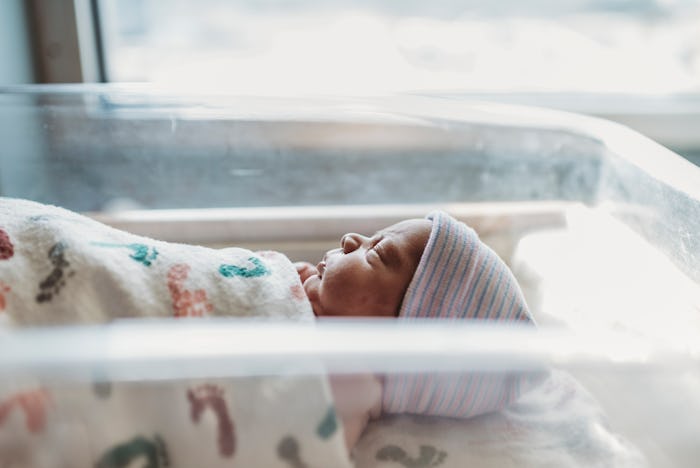News

What New Parents Need To Know About Stimulus Checks If You Welcomed A Baby In 2020
As the coronavirus outbreak carries on and puts financial strain on families all across the country, the IRS has started issuing stimulus payments as part of the government's economic relief package. Many adults will receive a one-time payment of $1,200, while qualifying parents will get an additional $500 per child. However, babies born in 2020 do not qualify for a stimulus payment immediately this year, a gap that may leave many new parents somewhat in the lurch during this difficult time of uncertainty.
Since the outbreak, Forbes reports that upwards of 16 million Americans have filed for unemployment and those numbers are expected to rise. In response to the hardships that come along with unemployment and financial impacts of the pandemic, the government approved a $2 trillion stimulus package to provide some economic relief. The law states that individuals with an adjusted gross income of $75,000 or less are eligible for a one-time payment of up to $1,200 — or $2,400 for couples who filed their taxes jointly — and $500 for each qualifying child.
But because payments are based on income taxes filed in 2018 or 2019, new parents who welcomed children in 2020 will not immediately receive the additional $500 for their new child. Howard Gleckman, a senior fellow at the Urban Institute’s Tax Policy Center, explained to USA Today that as long as they meet all other eligibility requirements, "parents of babies born in 2020 will have to wait until next year to receive their $500 payment for the child."
While parents are expected to eventually receive $500 credits for children born in 2020, as NBC News explains, the anticipation of receiving the money does little to help with the financial realities of raising a new child while unemployed or short on funds right now. Between baby equipment and reoccurring expenses like diapers and wipes, most parents spend over $10,000 in the first year of their child's life alone, according to a survey conducted by BabyCenter.
Fortunately, there are resources available for parents who are struggling. Effective April 1, 2020, essential workers — such as those in retail and service industries, healthcare workers, and construction workers — can get financial aid for childcare through an Emergency Child Care Subsidy Program; financial assistance will be offered for at least April and May. Essential working parents in need of financial assistance for emergency childcare during this time are encouraged to complete the COVID-19 Parent Application for Financial Assistance for Emergency Child Care and submit the form to your childcare provider.
For help with immediate needs such as diapers, formula, and baby food, diaper banks in cities across the country are taking donations to supply families with the basics. Additionally, the Feeding America network of food banks and food pantries serves communities in all 50 states. Use this food bank locator to get access information on where you can seek supplies in your own community.
Families across the country are struggling as they face loss of childcare, income, unemployment, and other financial hardships. While the stimulus package may not provide immediate help for families with new babies this year, there is help out there.
If you think you’re showing symptoms of coronavirus, which include fever, shortness of breath, and cough, call your doctor before going to get tested. If you’re anxious about the virus’s spread in your community, visit the CDC for up-to-date information and resources, or seek out mental health support. You can find all of Romper’s parents + coronavirus coverage here, and Bustle’s constantly updated, general “what to know about coronavirus” here.